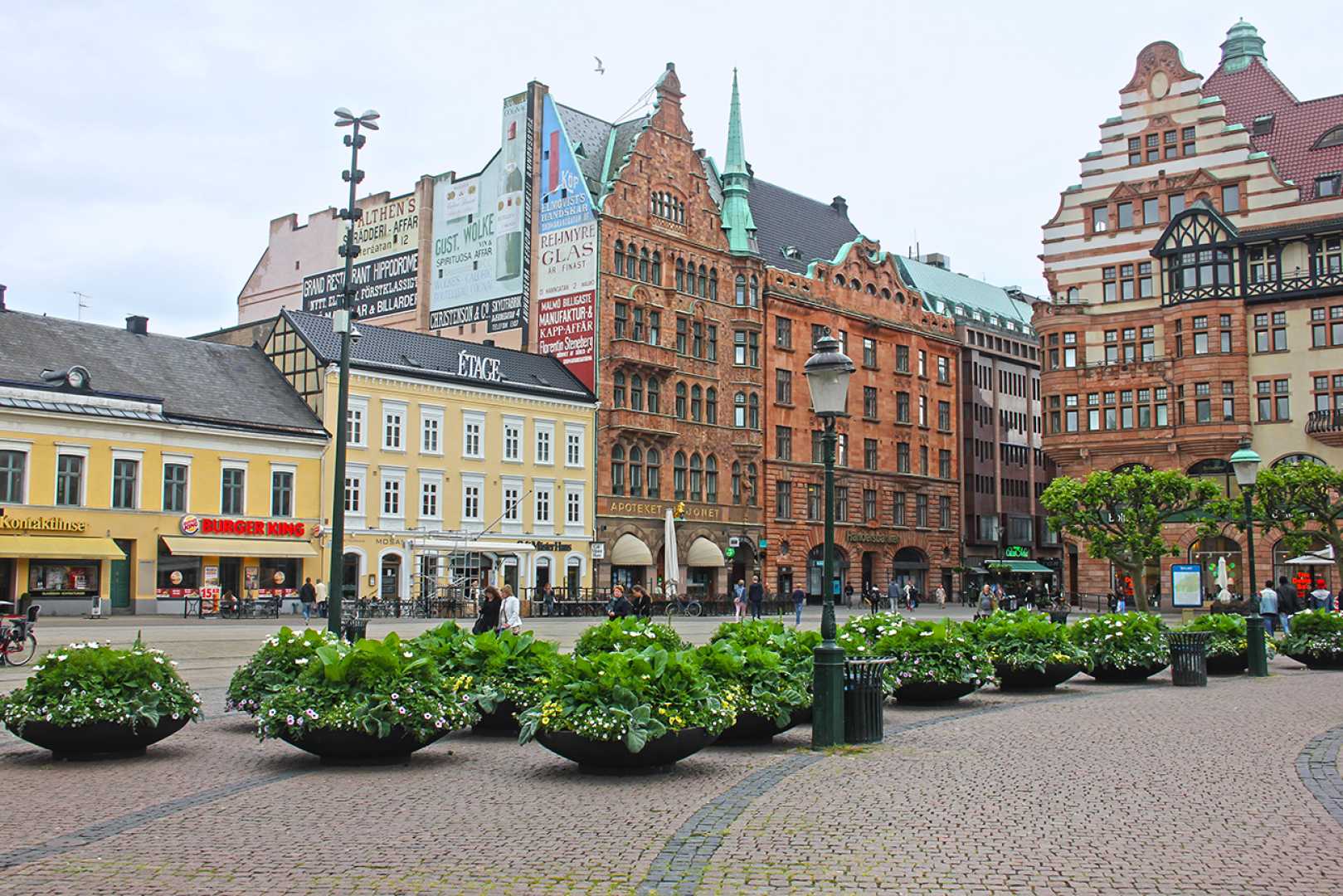World
Exploring Malmö: A Fusion of Culture and Cuisine

Malmö, Sweden’s third-largest city, is just a short train ride from Copenhagen across the iconic Öresund Bridge. Although often compared to the Danish capital, Malmö boasts a unique character shaped by its historical role as a port and its diverse population. Approximately one-third of Malmö’s residents were born outside Sweden, predominantly from the Middle East, which has enriched the city’s culinary scene, making it renowned as Europe’s falafel capital.
The city’s revitalization is partly attributed to the Öresund Bridge, celebrating nearly 25 years in operation, and favorable currency exchange rates. These factors have attracted artists and chefs priced out of Copenhagen and contributed to Malmö’s vibrant atmosphere.
A lunch at Saltimporten is a must when in Malmö. Located on an industrial pier, this beloved canteen established by former fine-dining chefs Ola Rudin and Sebastian Persson, offers a daily changing menu using ingredients from local farms. Saltimporten’s communal tables draw creative professionals from nearby businesses, providing an excellent culinary experience for about 135 SEK ($13) per person.
Malmö’s historic heart is defined by Stortorget and Lilla Torg, the city’s central squares. Stortorget features a town hall with a red-brick facade, while nearby Apoteket Lejonet is Sweden’s oldest pharmacy. The surrounding cobblestones and pastel-colored houses tell tales of the city’s past, contrasting modern attractions like natural wine bars and boutique shops.
Malmö’s harbor, with its evolving residential and commercial developments, offers unique dining experiences. For instance, visitors can enjoy a meal at a restaurant in the Varvstaden district where dishes are prepared over open flames. A delightful culinary journey through juicy grilled peaches and charred lamb offers diners an unforgettable evening.
For a taste of Swedish tradition, breakfast at a local café around Gustav Adolfs Square serves masterful espressos paired with flaky croissants, inviting patrons to enjoy people-watching through large windows.
A visit to Malmöhusslott, a 17th-century citadel surrounded by a park, provides historical insights and art collections including landscapes by Carl Frederik Hill. Across from the castle, visitors can buy fresh seafood from painted huts, a nod to Malmö’s maritime legacy.
The Disgusting Food Museum provokes curiosity with its exhibits of unconventional delicacies like surströmming and Mongolian sheep eyeball juice, challenging perceptions of taste and cultural food norms.
Malmö is also a fashionable destination, with Scandinavian design shops offering both contemporary pieces and vintage finds near Davidshallgatan. Additionally, Bageri Leve offers vegan cardamom buns reminiscent of traditional Swedish sweet treats, demonstrating the city’s thriving café culture.
For dinner, patrons can reserve a table at a popular bistro in the Möllevången district, known for its creative approach to vegetables across diverse tasting menus.
A nightcap can be had at local bars such as Bar Kiosko, offering a convivial atmosphere with well-crafted cocktails, culminating a perfect day spent exploring Malmö’s enticing offerings.












